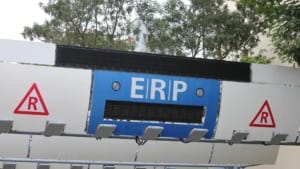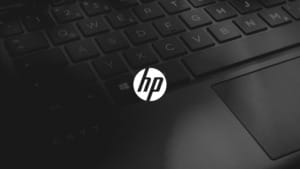AI-powered water quality sensor and smart keyboard for Parkinson’s named global winners of the James Dyson Award
WaterSense and OnCue win the 2025 James Dyson Award for tackling water pollution and improving life for people with Parkinson’s.

The James Dyson Award has announced its 2025 global winners, recognising two groundbreaking inventions that use technology to tackle pressing environmental and medical challenges. Each winner will receive S$50,700 to further develop their innovations, which focus on real-time water quality monitoring and improving digital accessibility for people with Parkinson’s disease.
Table Of Content
Now in its 20th year, the international student design competition continues to celebrate young inventors who create practical solutions to real-world problems. Since its inception, the award has supported more than 400 student-led inventions worldwide, distributing over S$2.7 million in prize money. This year, the competition received more than 2,100 entries from 28 countries and regions.
James Dyson, Founder of Dyson, said that the winning projects reflect the award’s mission to promote problem-solving through design. “Our 2025 winners, Filip and Alessandra, are a testament to that spirit – they address challenging health and environmental issues with practical, ingenious solutions. I hope that winning the Award will be a springboard for commercialising their world-beating inventions,” he said.
WaterSense advances sustainable water monitoring
The Sustainability Winner, WaterSense, was created by Filip Budny, a PhD candidate in nanotechnology at the Warsaw University of Technology in Poland. His invention aims to revolutionise how water quality is monitored in rivers and lakes, replacing slow, manual testing with an autonomous, AI-powered system that delivers continuous real-time data.
WaterSense operates using energy generated from natural water currents through a built-in hydrogenerator. The device uses recyclable paper sensors instead of traditional plastic or metal components, measuring over 20 water quality indicators, including pH, dissolved oxygen, nitrates, and chlorides. These sensors are automatically replaced daily, ensuring consistent accuracy without manual intervention, while used sensors remain stored within the device for up to 12 months.
By drawing water samples from three adjustable depths, WaterSense provides layered insights that can detect pollutants hidden below the surface. Data collected by the device is transmitted to an AI-driven online platform that learns from historical trends to forecast potential pollution events up to 72 hours in advance. The platform’s findings are made publicly accessible, empowering communities and authorities to take early action.
Filip’s prototypes are already being tested at 20 sites across Poland in collaboration with local governments and water companies. He aims to expand the system across Europe by 2026 and is currently raising investment to scale production and deployment globally. “The James Dyson Award confirms that environmental innovation has a global voice. It motivates me to keep pushing – to build, test, and deploy systems that make clean water measurable, predictable, and accessible to everyone,” Filip said.
OnCue empowers people with Parkinson’s

The Medical Winner, OnCue, was designed by Italian product designer Alessandra Galli, a graduate of Delft University of Technology in the Netherlands. Her invention helps people with Parkinson’s maintain independence and confidence in using computers. OnCue is a smart keyboard paired with wristbands that integrate haptic and visual feedback to assist with tremors, freezing, and slow movement – common symptoms of Parkinson’s.
Each key press triggers a gentle vibration through both the keyboard and wristbands, helping users establish a steady rhythm while typing. If a key is held too long, the vibration gradually increases, signalling the user to release and continue. The AI-enhanced system predicts the next letters in a word, illuminating them on the keyboard to guide the user and reduce typing errors.
OnCue features a split, compact layout inspired by gaming keyboards, designed to reduce strain on the hands and arms. It connects wirelessly via Bluetooth, with a battery life of up to a week. Recognising that Parkinson’s symptoms can vary, Alessandra made the device highly customisable. Users can adjust vibration intensity and lighting, and future software updates will allow personalisation based on individual routines and symptom patterns.
“Winning the James Dyson Award is both an honour and a confirmation that committing to this project after graduation was the right decision,” Alessandra said. “The prize provides significant support for completing the operational prototype, bringing the project one step closer to reaching people with Parkinson’s.”
James Dyson commended her work, saying: “For those living with Parkinson’s, typing can be a frustrating experience. Alessandra has tackled this challenge by designing OnCue. It’s a clever and empowering solution, allowing people with Parkinson’s and other motor conditions to stay connected and communicate independently.”
Encouraging a new generation of problem solvers
Since its founding in 2005, the James Dyson Award has provided young engineers and designers with a platform to develop innovations addressing global issues. Run by the James Dyson Foundation, the competition gives participants full ownership of their intellectual property and encourages them to transform ideas into real-world impact.
This year’s winners, WaterSense and OnCue, exemplify the competition’s ongoing mission to foster creativity that improves lives and protects the planet.














